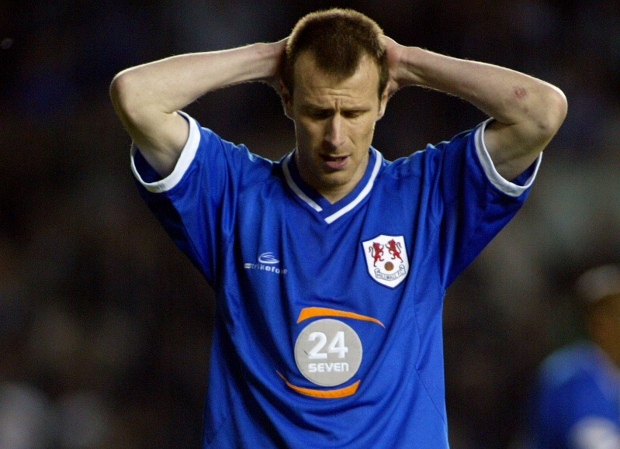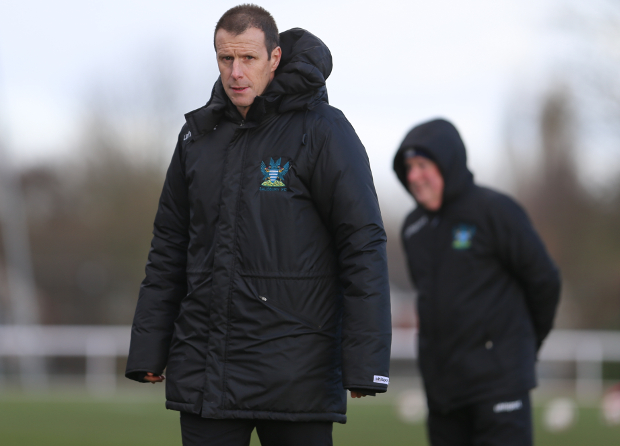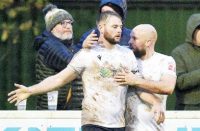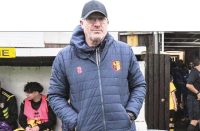By Chris Dunlavy
RECKON the play-off hangover is only a myth? Just try convincing Salisbury manager Steve Claridge.
In May 2002, the striker was part of a Millwall side flying under Mark McGhee. Division Two champions 12 months earlier, the Lions had surged straight into the play-offs.
When Birmingham were held to a 1-1 draw at St Andrews in the semi-final first leg, most pundits thought Millwall were bound for the Millennium Stadium.
Then came a night of heartbreak as a 91st-minute winner from Blues striker Stern John wrought desolation on the Den.
Claridge and co hit the beach, consigned to another campaign in the second tier. Birmingham hit the big time, beating Norwich to reach the top flight for the first time in 18 years.
“You go home, you try to forget about it,” says Claridge. “But when you’re talking about playing in the Premier League, that’s very hard to get over.
“I still remember when the fixtures came out. Birmingham’s first game of the season was Liverpool at Anfield. Our first game was Rotherham at home. Psychologically, that hurts.
Perception
“We ended up getting beat 6-0 off Rotherham and that kind of set the tone. Over the season, we never came close to replicating what we’d done before.”
For Claridge, the tale is a warning from history. Like Millwall, Salisbury followed a title winning 2015-16 season in the Wessex Premier with a promotion chase in the Evo-Stik South & West.
And, like the Lions, they came up agonisingly short, limply losing 2-0 at home to Tiverton in the play-off final. The lesson from Millwall?
“You have to freshen things up,” says the 51-year-old. “People have this perception that because we’ve come second to Hereford, we’ll go again. They think ‘Well, they’ve just fallen short so they’ll be good enough to win it next year’.
“But that’s not a given. At Millwall, we kept too many players. We didn’t strengthen. We’d played to our absolute max to reach the play-offs and no team can do that season after season.
“It also meant the disappointment lingered and you had a squad full of faces all scarred by what had happened.
“That’s such a massive thing and through that experience I came to understand the importance of change. That’s what I’ll be focusing on this summer.”
Battling perception is a permanent chore for Claridge. The former Leicester striker and BBC pundit took charge in 2015 when Salisbury FC was formed from the ashes of Salisbury City.
A Conference Premier side, the Whites were expelled due to financial problems in 2014 and were subsequently liquidated.
The Phoenix club – of which Claridge is also a director – has the same name, colours, crest and stadium. Yet that, insists their gaffer, is where all similarities end.
“Expectation is way, way too high sometimes,” he says. “We’re still compared to how the club was before liquidation, which is totally unrealistic.
“Last year, we played a team two leagues above us and everybody turned up expecting us to beat them. Why? The perception is that Salisbury would have beaten them comfortably five years ago.
“But so many things have changed since those times and getting that across is sometimes the most difficult thing.
“It’s the same with players. There’s lots of people who come to sign for us with a perception that the club’s still paying big money. Then you sit down and tell them that – apart from one player – our boys are paid between forty and a hundred quid. Suddenly they aren’t so interested.
“Are we a bigger club than others at this level? Yes. But we’re not ten times bigger like Hereford were. Gripes
“Hereford could punch their weight. No-one can compare with them at our level and I don’t think this division will ever see a team like that again. They’ll go through the leagues because that’s the size of them. They had four-and-a-half thousand for the last game.

“Our budget is comparable to probably five or six of the other teams. And the big leveller for everyone else is that our ground costs a fortune.
“We might get two or three hundred more than a Taunton or an Evesham but all that extra revenue goes straight back out on running the club.”
For all the gripes, Claridge is loving his third crack at management after mixed stints at Portsmouth and Weymouth. And he insists he is happier toiling to replace the 96 goals of departed strikers Justin Bennett and Tommy Wright or prowling a Wessex League touchline than he is tucked into a commentary box at Stamford Bridge.
“I love the radio but I’ve been doing it for 26 years,” adds Claridge, who does all of his own scouting. “I started at 25. Can you believe that? I was playing for Cambridge – 1991 I think it was.
“Someone had dropped out and they called me up to ask if I’d step in. It was a 12 o’clock kick-off at Ipswich so I tore across and it all went from there.
“I enjoy what I do for the BBC but, the truth is, nothing compares with being back in a dressing room. Management is what I’ve always wanted do.”
Full time?
“Listen, I’ve got a job to do here,” he says. “I’ve had one or two approaches but I’ve got a certain loyalty to this club.
“I’ve signed players on for a couple of years and it isn’t fair on them. It’s a really good club, I like the people I work with. We’ve had one or two disagreements but they’ve been sorted out.
“And in two years we’ve probably had two disappointing games. Any manager would want a job like that.”























